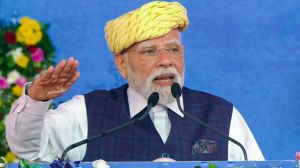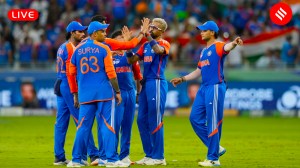HC rejects Novartis plea against patent law clause
The Madras High Court today rejected a challenge by Novartis to a provision in the Indian Patents Act that denies patents for minor improvements to known drugs

The Madras High Court today rejected a challenge by Novartis to a provision in the Indian Patents Act that denies patents for minor improvements to known drugs, and the Swiss drug giant said it was unlikely to appeal.
Dismissing the writ petitions by Novartis AG of Switzerland and Novartis India, challenging the constitutional validity of Section 3 (d) of the Indian Patents Act as amended in 2005 along with an explanation, a Division Bench, comprising Justice R Balasubramanian and Justice Prabha Sridevan, said it had no jurisdiction on whether Indian patent laws complied with intellectual property rules set by the World Trade Organisation, as Novartis had questioned.
Reacting to the judgment, Ranjit Shahani, Vice-Chairman and Managing Director, Novartis India Ltd, said the court decision would “have long-term negative consequences for research and development into better medicines for patients in India and abroad.”
“We disagree with this ruling, however, we likely will not appeal to the Supreme Court. We await the full decision to better understand the court’s position. Our actions advanced this essential debate in India; now local and international leaders in both industry and academia recognize the inadequacies of Section 3 (d) and are raising serious concerns about the deficiencies of the Indian patent system,” he said.
Novartis says the Indian patent system stifles innovation. Critics of Novartis say changes to the law would affect the supply of affordable anti-AIDS drugs from India, one of the biggest makers of generic drugs.
In January 2006, the Assistant Controller of Patents, Chennai, rejected Novartis’s application for a patent for the beta-crystalline version of its drug, imatinib mesylate sold under the brand name Glivec, used in the treatment of myeloid leukaemia (blood cancer).
While rejecting the application, the Assistant Controller had invoked Section 3 (d) of the Act, which says mere discovery of a new form of a known substance cannot be considered a patentable invention, unless it has resulted in “enhancement of its known efficacy or that the derivatives differ significantly in properties with regard to efficacy.”
Novartis went to court challenging the rejection of its application. Its contention was that the section was “vague, arbitrary and ambiguous.” It also did not provide “guidance” to the patent controller as to what constituted “enhanced efficacy” or what was meant by “differing significantly in properties with regard to efficacy,” the firm argued.
But the Bench said Novartis was “no novice” in pharmacological field and could not take the stand that it did not know what the order meant.
Photos



- 01
- 02
- 03
- 04
- 05




























